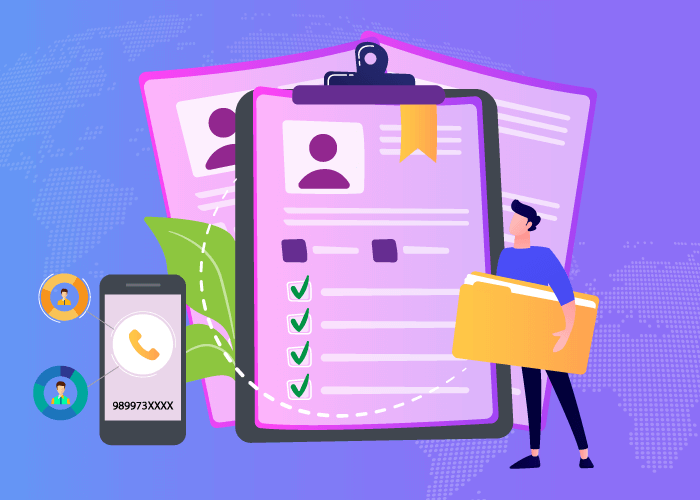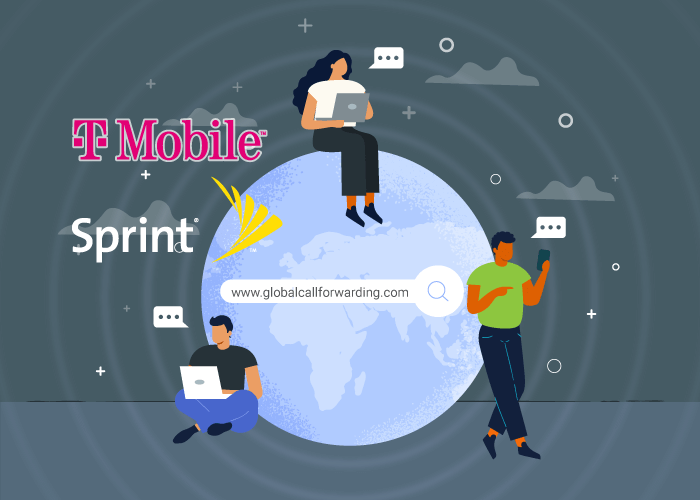Are you in the market to outsource your customer service needs? Then, you are looking for either an inbound or outbound call center. But how do you decide which one is suitable for you? That starts by understanding the difference between inbound and outbound calls and which is the one your company needs.
Inbound vs. Outbound Calls
Both inbound and outbound calling are customer service tactics used to generate sales through phone conversations. And so, they are usually conducted by customer service teams or call centers. Deciding which service your business needs is based on what type of calls you receive more. Does your business run on calls coming in from customers and prospects? Or, do you make your sales, like a telemarketing company, by calling customers, making a pitch, and selling a product? In other words, do you have a high volume of incoming or outgoing calls?
What are Inbound Calls?
Inbound calls are types of calls that a customer makes in order to connect with a contact center or a call center. The help desk also responds to inbound calls just like a contact center, but calls initiated to a help desk will usually come from employees and less likely from a customer.
Inbound and outbound calls can be attended to exclusively or in a combination of both by the call center.
Customers who initiate an inbound call to a call center will usually be doing so to make inquiries about products and services, as well as to make complaints. The information gathered by the call center agent is then used to find a resolution to the complaint or to provide information that the customer has enquired upon.
There are several metrics that are used to measure the performance of an inbound call agent, these include average handle time (AHT), time in the queue, and first call resolution (FCR). Inbound call centers occasionally enumerate the service goals that the call center will aim for in a service-level agreement (SLA).
Due to advancements in communication technology, inbound call agents now communicate with customers via other means such as chat and emails, which allows customers’ needs to be met from a variety of methods.
What is an Inbound Call Center?
An inbound call center is a company that responds to calls initiated by customers.
Inbound call centers are designed to provide customer support or service. In many cases, inbound call centers have been found to be a part of the sales division by taking sales orders and also serving as an internal help desk for organizations and businesses.
Customers will call a business for a variety of reasons, such as:
- To ask information about a product or service
- Make an appointment or reservation
- Resolve an issue
- Connect with customer service
- Make a payment
- Register a complaint
- Get support or assistance
- Leave feedback and suggestions, and more.
In most cases, many organizations do not directly handle inbound calls. They usually contract that aspect to external inbound call centers. Businesses rely on external call centers to receive inbound calls because it is typically cheaper to purchase the service, rather than paying the cost of employing several call center agents, along with implementing an actual call center into their business.
Most businesses take advantage of incurring the cost of inbound calls on a “per minute” charging basis compared to incurring the financial burden of acquiring calling equipment and staff that the task needs. Appointment setters, customer service, inbound call centers, and customer or tech support teams are the ones that usually take care of inbound calls. Agents answer the call and help customers through positive interactions. An inbound calling service, therefore, is a suitable option for a business with a high incoming call volume.
What are Outbound Calls?
Unlike an inbound call that is initiated by the customer, an outbound call is a call to a customer from the call center or on behalf of a business. Have you ever received a call from a strange number with a voice that could be that of a man or a lady asking for or giving information about a product or service? That is what an outbound call is.
Outbound calls are part of a series of activities that businesses engage in by utilizing call centers to reach out to their customers and prospects.
Modern technology has improved the features of outbound calls that assist call centers in doing a better and effective job. New features such as auto-dialing and predictive dialing are tools that help call center agents maximize their time more efficiently.
Another great tool that helps in making outbound calls more efficient is the automatic call-back tool. Other features such as call scheduling, as well as customer relationship management tools all help to enhance the quality of outbound calls. Call center agents who have information about customer behavior are equipped to make better-quality outbound calls.
Generally, outbound calls have improved in efficiency over the last decade with improvements made to enterprise software, which are readily available and are at the disposal of the call center.
The typical nature of an outbound can include:
- Fundraising calls
- Sales calls
- Telemarketing
- Calls for contact list updating purposes
- Surveys
- Verification services
What is an Outbound Call Center?
An outbound call center is a type of business activity center that consists of a collection of call center agents who make calls to existing and prospective customers on behalf of clients and businesses.
Outbound calls are often facilitated with the use of modern technology in order for them to be efficient. With the help of tools like a predictive dialer, a large volume of calls can be made within a shorter time.
These are some of the uses of outbound call centers:
- Make sales pitches
- Generate and qualify new leads
- Conducting market research
- Provide company updates
- Raise funds or donations
- Appointment setting
- Follow-up on previous purchases or visits
- Leave reminders for renewals or appointments
- Proactive customer service
- Upselling and cross-selling
- Collect feedback and surveys, and more.
This type of calling is generally more sales-focused. Sales teams and appointment setters use outbound calling due to their high outgoing call volume. They call clients on a list determined by metrics and market research to pitch a product or service, renew appointments, or collect data. And so, an enterprise that needs to make multiple sales calls will find an outbound calling service more useful. Basically, if more than 50% of your calls are outbound, then you can be considered an outbound call center.
Differences Between Inbound And Outbound Call Centers
The type of calls that take place at a call center ultimately determines whether that call center is an inbound call center or an outbound call center. This is the main factor that can differentiate between one or the other.
If over 50% of calls that take place at a call center are inbound, that call center functions as an inbound call center. The same criterion applies to outbound call centers.
If you operate a call center, determining the type of call center that you are operating or planning to operate is key to implementing the protocols and systems you want to run in your call center.
For example, if your call center handles primarily inbound calls, there may not be a need for technology devices like a predictive dialer. Your focus will be more on tools that are more suited to inbound calls.
For call centers engaged in outbound call activities, more resources are available in software programs that will help make them more efficient. Tools such as call scheduling, predictive dialing, and automatic callback are some of the essentials for an outbound calling center. Calling features such as call monitoring, which is great for listening in on outgoing calls should also be utilized for those interested in maximizing the services offered.
Related: Call Center Trends in 2023
Technology Used for Inbound and Outbound Calls
Depending on whether your company makes more inbound or outbound calls, you will require different technology and software to ensure smooth running. Virtual phone service providers like Global Call Forwarding offer these tools and features along with your business number to enhance your customer relations.
Inbound calling benefits from:
- Call forwarding: to forward and direct calls to different office locations or during specific days and hours
- Metrics and call activity: making note of average handle times (AHT), queue times, average speed of answering (ASA), customer effort score (CES), etc.
- Call tracking: tracking when and where incoming calls are coming from
- Extensions: for different offices or departments
- Call transfer: the ability to transfer to different offices and departments
- Interactive voice response (IVR): to welcome and direct callers through a series of menus.
Outbound calling technology includes:
- Outbound calling with customizable caller ID: to call clients with a caller ID of a virtual number purchased for a specific location
- Dialers: predictive or automatic dialing technology
- Outbound IVR: proactively engage customers through voice calls, SMS or email, and by delivering personalized customer experience
- Customer relationship management (CRM) systems: to record and note customer data and engagement.
Assisting and Empowering Call-Focused Businesses
Inbound and outbound calling can enhance the way your company interacts with returning and prospective customers. You can outsource your business communication needs to inbound or outbound call centers. Or, purchase your business number with Global Call Forwarding and get communication tools and features that support your calls. Call us today to learn more.










